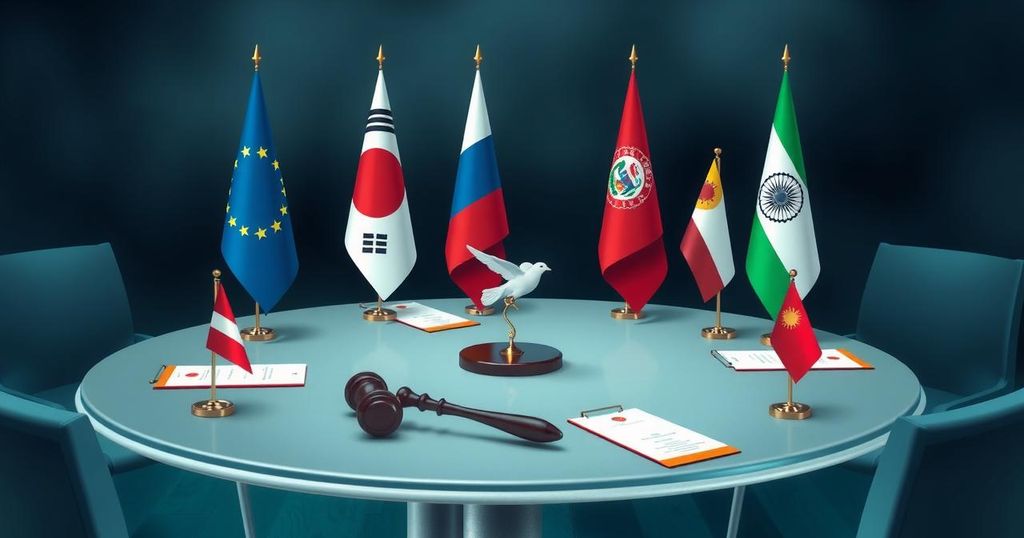SADC Advocates for Inclusive Mediation Panel in DRC Peace Process

The SADC has called for a more inclusive panel of peace facilitators in the DRC peace process, signaling discomfort with Kenya’s unilateral initiatives. President Ruto’s earlier facilitator list raised concerns for lacking formal SADC backing. SADC stresses the need for regional balance and gender inclusion, proposing alternatives that align with a broad consensus, indicating Kenya may need to reconsider its approach in this diplomatic effort.
The Southern African Development Community (SADC) has expressed the need for a more inclusive group of peace facilitators in response to Kenya’s proposed shortlist, led by President William Ruto. This initiative reflects the community’s discomfort with Kenya’s prominent role in the peace negotiations concerning the eastern Democratic Republic of Congo (DRC). SADC’s emphasis on a broader facilitator panel undermines Nairobi’s unilateral approach in the mediation efforts.
In a recent joint meeting held in Harare, the attendees did not specify individuals or overtly criticize Kenya’s previous actions; however, the communique’s call for a diversified panel reveals concerns regarding Kenya’s dominant diplomatic posture. The discussion included clarifications on a facilitator list containing prominent figures, including former Kenyan President Uhuru Kenyatta and others, which had circulated without official SADC endorsement.
During the meeting, SADC highlighted the importance of achieving regional balance and ensuring gender representation in the facilitation team. The government of Kinshasa has suggested former Ethiopian President Sahle-Work Zewde as a potential alternative to Hailemariam Desalegn, who is perceived by some as being too closely associated with Kigali. This suggests that the current facilitator list lacks agreement among the member states, prompting a reevaluation of Kenya’s diplomatic strategy.
The ongoing facilitator discussion points to larger geopolitical considerations, illustrating Kenya’s desire to expand its influence in African diplomacy. In contrast, SADC advocates for a process reliant on consultation and equitable representation. The Harare meeting has underscored how existing regional tensions can complicate efforts toward achieving local solutions in the context of African affairs.
In summary, SADC’s push for a more inclusive panel of peace facilitators indicates a need for consensus and balanced representation in the mediation process concerning the DRC. Kenya’s initial unilateral approach has faced resistance, suggesting that regional dynamics and rivalries may obstruct the pursuit of effective solutions to conflict in the region. The implications extend to the broader context of African diplomacy, emphasizing the importance of collaboration and inclusivity among member states.
Original Source: eastleighvoice.co.ke







